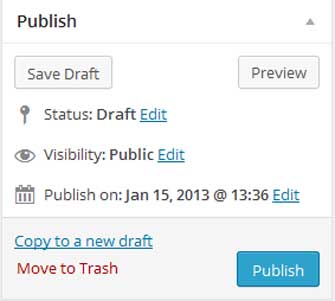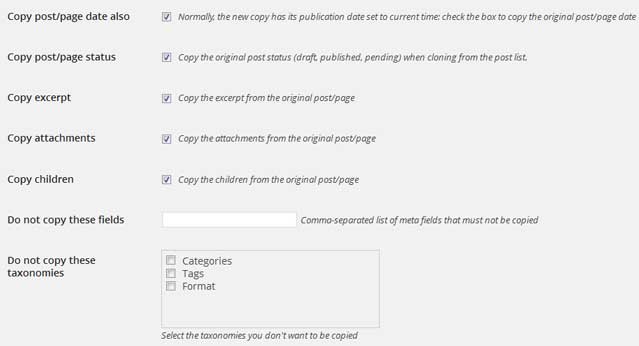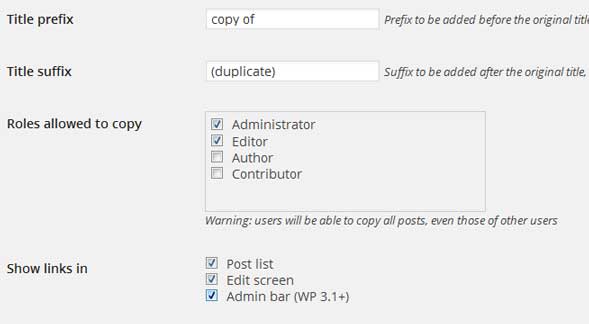Find keywords (or search "keywords") and optimize content for Google to the position best for those keywords and receive from there a right amount daily visits is one of those cases.
I have published many posts about SEO in this blog, but comments like this make me see the need for such an example to understand how to do this.
So today I will develop a practical example of how to make a proper keyword analysis to determine some keywords that allow you to position one of your best content on Google.
In a second post, I will complete this example with another where we will focus on how to apply the results of this analysis work keywords in the content of the post.
What are keywords and what are they exactly?
Google is a great invention because we can find information about anything imaginable with this search. Naturally, I will not tell you anything new about this.
But what not everyone is aware, is that this is also true in reverse, that is, Google is also a huge market research, know what people demand, whether for pure entertainment, to form, to solve a problem to buy or for anything else. He knows through searches Drumming people (ranging accounting).
That is if you search for "where to buy a cheap Thermomix" the words of this sentence are the great keywords.
The
fantastic thing about this is that you can also access this information. That is, you can know what the words are exact keywords that people use in their searches, how many searches done of them in a month and more.
Therefore, if you know what these are, you have the opportunity to meet them providing content that fit those demands.
It led to commercial land; it is the dream of any entrepreneur: to know with absolute precision and in seconds what your customers so you can design a product or service that you know in advance that your clients will want to buy demand. Compare this to make a study of the traditional market.
Think about it a moment, think for a moment how incredibly powerful that it can do this and the incredible possibilities offered if you put a little imagination and work to use it.
Now you understand why there is no crisis to online businesses and know what position yourself in Google for searches that interest you plays such an important role in all this. Like a new window to a huge market with demands of all kinds,
commercial or non-commercial, previously not known for that level of detail.
And when I say that market is important as it gives users a simple hobby without any commercial intent or an online store. The problem is always the same, get potential readers/customers will see on the Internet. It is always a matter of supply and demand, even when the "product" is free as is the case with the content of a blog.
If you want to take advantage of this to your factor, SEO is the key to these people you see yourself before others and you who can meet these needs.
There you have the secret of success online, direct business, right?
So if you saw clear whether you are worth getting into this to learn SEO, I hope you now see very clear
A detailed example of keyword analysis
Done this prelude, Let's get into flour with the following scenario example:
We have a fashion blog whose author, Sonia, wants its contents have constant traffic, you want to go beyond the peak of visits of initial publication and achieve steady traffic.
Let's assume that Sonia already has more than a year to publish about two posts a week, and that has already given some authority to Google. To be specific, I will assume that you have a domain authority (DA) 20.
This metric of "
DA" thoroughly explained in our free eBook SEO for beginners, but in any case, we'll also seeing the post.
To get that traffic is trying to achieve. Apparently, the most powerful thing you can do Sonia is positioned at the top of the search results on Google for one or more searches than do people usually performed on Google and that are related to their subject.
Sonia already knows that SEO optimization work well done On Page starts with an analysis of keywords related to the theme of the content you want to publish.
Guessing keywords thoughtlessly with no idea of whether people used to search Google, if not to find keywords real, that people use, having a particular volume of searches and reconcile with topics on which you want to write.
Also, it is also about the level of competition in the search results for those words to estimate whether the degree of authority that has reached its blog is realistic or not compete for those positions.
And also, remember that our goal will always be late, or early the first page, preferably in the first 3-4 posts are those large pieces of the cake carry.
Finding the best keywords for your content
The topic that you want to write this time is a post on where to buy shoes pimps party and a good price.
There are also free tools like the Keyword Planner AdWords, but Google increasingly restricted open access to this tool, and other tools are very limited in their free forms. Then we see more of this.
Total, Sonia to work sets and begins his analysis of keywords with first seed keywords.
The idea is seed keywords are words that may correspond to intuit that typical searches that people make and the tool will tell you that particular searches are using these words if they exist. And if there are not, directly because then you try another.
Also, with the help of the tool from these seed keywords, you will encounter other interesting keywords.
Sonia begins with the obvious: "party shoes" on analytical tool keyword and the tool presents an extensive list of actual searches that contain the word "shoes" and "party".
There have been lucky and get a lot of results, some very attractive (for its search volume) for these words:
Best of all is that after also analyze the level of competition, Sonia discovers that is surprisingly affordable, even more, generic search "party shoes" (12,100 searches/month) is not so terribly difficult as one would expect for such an extensive search in such a challenging and competitive as the fashion niche.
It is a search that even for a new blog like yours and authority it deserves, it seems very natural. Also, it still has some fascinating searches (880 per month).
How to determine the level of competition for a particular search
And now you ask: What can you tell if Sonia is easier or more difficult position in those searches or other?
See with a tool like the Mozbar, a free extension for FireFox and Google Chrome that allows us to measure the level of competition with two metrics are calculated from links received:
Page Authority (PA): It is the fundamental parameter that determines the number of links received by the page. Domain Authority (DA): It determines the number of links received by all pages of the domain. Less important than the first, but also important. You can already guess that the higher these values, harder to compete with them.
It is complicated to general rules because there are several factors of great weight to consider, especially the links you receive your page, and you are going up the authority of the page. Making change positions and optimization SEO On Page of each of competing pages that modulate the real force which will be PA to the case.
Given this, I'll assume you're going to get good quality links 1-2 (pages with greater than or equal to 25-30 authority). On that basis I can give a strict orientation mode so that you have a rough idea of where to go or so shots in this context):
Racing a page with a maximum 10-15 PA will be relatively easy for almost any website with a little authority (say that with a
DA of 15 or more). From a PA 20 or so you will notice that the thing is not so easy, and a page with a PA 35-40 will be a tough nut to crack (not impossible) even for a relatively blog authority like ours (DA 40). And a page with a PA 50 or more, unless you have a site with enormous potential and the ability to have several inbound links outstanding quality (pages with high PA), better forget directly ...
Now, I insist: this scheme is very exact, it depends on the above factors and the authority having your site, and you have to try your particular site to go gauging how much it costs you compete depending on what metrics competition.
Another important issue is that these values are not accurate, this is rather a bit "fuzzy logic". But that is very close in practice, and although at first this all may seem relatively rare, with practice you will see that this is a quite fast, intuitive and reasonably reliable estimate your chance to position yourself in a certain way search.
The reason is that Google does not provide this information, it kept secret. But companies like Moz have their systems to get estimates quite close to reality.
However, sometimes there are rare anomalies as in the example where you can see a first unexplainable result if we consider their values PA and DA.
Note that the search results page you're viewing contain a gray bar with the PA and DA values of each outcome. That's what makes the Mozbar and that way you can have a pretty good impression of how close is the playground for competition for a particular search.
and analyzing several searches, Sonia and reaches some very definite conclusions:
"Cheap shoes party" is a micro-niche (very specialized niche) explore a significant demand. It seems excellent idea to publish content that fits this niche if we get constant traffic.
The father niche "party shoes" seems to have also a long tail fascinating (now see what this is). You have to research this further to find opportunities.
For the indicators that show the Mozbar (authorities page 1, 22, 26, etc.) we can see that does not seem to have a very high level of difficulty for a blog like Sonia already, it has some authority though the difficulty not negligible. Also, since the second result, we see that even corresponds to the exact search (missing the "cheap" in the title).
Yes, they are very significant indicators of PA and DA of the first result. Major inconsistencies are ever seen on Google and why we choose to ignore this case. We take as reference the PA values of 22 and 26 to calibrate the difficulty of competing here. It said more about how to analyze the challenge to fight based on the PA and DA values resulted in SEO eBook.
It is also interesting to note a significant number of AdWords ads on this page (it is, therefore, a niche sued by advertisers). It is an indicator suggesting that this niche may be able to work well for online advertising monetize with AdSense or affiliate marketing.
always takes the long tail (Long Tail)
I do not want to scatter here with the concept of the long tail because we descent ramps and also, as I'll explain in depth in the book and the post long tail mentioned earlier in this post, but in summary, I'll tell you something as well as the hidden part of an iceberg.
That is, 80% or 90% of the total volume of searches for given keywords compose those variants seek lengths.
These searches are a much smaller size than the main and can say that in that sense are "invisible" do not pay attention to the analysis of keywords because they have tiny volume each.
Moreover, the tools do not show searches with a size of less than 10 per month. So these neither can see if you wanted.
The key issue is that are so many that among all add up to much more than the principal. 90% or more of a niche is its long tail - hence, it is that that 80% say. The principle of the iceberg: the biggest part is not in sight, can only intuit.
You can see this very well in catching up to search "party shoes" and searches where more generic terms are thousands of searches and more accurate ( "shoes appropriate side," etc.). See how they are descending rapidly to very long searches as "comfortable heel shoes for the party" or "buy shoes women's holiday" with a dozen or few tens of searches a month.
What has this to do with our example?
Very easy, we can use this to try to "get laid" for a search. Also, long-tail searches are usually much easier than generic, often even virtually no competition. So are also a very appropriate strategy for a new blog, without authority (and, therefore, no strength to compete), go slowly positioning itself in Google.
How does exactly what we will see in detail in the second post to discuss the SEO of the elements of a page (SEO On Page). But I'll advance that is using keywords searches which you want to focus on the elements heavier (title, URL, etc.) and take advantage of other variants of long tail items less weight to Google (subtitles, text, etc.).
But for now, I want to limit the part of the analysis is to find some new long tail searches that fit the content of Sonia.
Here there is an enormous volume of searches but not a serious exchange competition for search and Sonia estimates that should have chances of appearing on the first page of results (which is the only one that counts).
And finally, as Sonia already has some practice with this
SEO know that many niches are susceptible to geographic locations. That is, in this case, there will be a% that will interest you buy shoes cheap holidays in Madrid, Barcelona, Valencia, etc.
With Sonia believes that this is enough for this time, and has a lot of searches and the question is now whether can take advantage of all of his posts.
In short, it is with these top searches:
"Party Shoes" (12,100 searches/month): Corresponds to the niche in which is fixed, probably somewhat difficult to get to be in the top positions. "Cheap shoes party" (880 searches/month): The primary search that will focus on content optimization. Subsequent analysis has found it realistic to try to finish in the top three positions if well-optimized page and get time 1-2 good inbound links.
As these are the top searches, make sure that your keywords appear in the elements more weight to effect SEO: the page title (<title>) and the main title, URL, somewhere subtitle in the meta-description and, of course, regularly in the content itself.
suitable titles might be things such as, "Super-Guide: Cheap shoes party in Madrid and Barcelona" or "10 wonderful to buy shoes cheap holidays Shops".
Here comes also a few more words as "store", "Madrid" and Barcelona "corresponding to long tail searches and help you win many positions also here
How secondary searches:
"Comfortable shoes party" (590 searches/month): An interesting search that can fit nicely as a secondary objective (i.e., where a subtitle to explain, for example, to choose what to look comfortable shoes). "Madrid party shoes" (390 searches/month): Another exciting quest to take it into account.
"Barcelona party shoes" (140 searches/month): Idem to the previous one. "Party shoes black color '(90 searches/month). "Comfortable heeled shoes for the party" (50 searches/month). Etc. There are still many more exciting side quests, but I think with this, and you'll get the idea.
The important thing here is that with secondary searches the strategy is not to conquer the top positions, but may we achieve with definite but small amounts of clicks clawing each one adds up all of them.
For example, a subtitle as "How to Choose comfortable heeled shoes for a party" will be positioned on the first page for numerous long tail searches for which there is practically no competition.
Many of them are searches that you will not find in an analysis tool keyword, and that could be for example "how to tell if a shoe party will be comfortable," tricks to make shoes more comfortable party" etc. I think you're catching me.
So if you look at 4 or 5 searches long tail as the next listed above fit well with your content as a basis for corresponding subtitles (and writing them as such in the text occasionally) and do not have to worry about anything else.
You are already pointing in the right direction and writing naturally, without thinking about the SEO this content, you're going to scratch some clicks of long tail searches.
Search keywords with a competitive analysis
In the above discussion, we have used the traditional approach of thinking about keywords "seed" and pull from their thread with a tool to find actual searches and explore all kinds of variants of those searches.
But since a few years ago, it has become an increasingly popular approach to the analysis of competition because it is incredibly fast and efficient. Does not mean you have no sense an analysis of common keywords, but in many cases, it will be like comparing a turtle with a Formula One.
The trouble is that this with free tools and can not do it, you need a professional tool.
The idea of a competition analysis is very simple: if you know what keywords your competition positioned and what particular areas, would have done all of a sudden a lot of analysis and for many different contents. It is the way of working nowadays many SEO professionals. Tremendous, right?
You can see in detail how done if you want to know this alternative to keyword analysis.
Tips for choosing effective keywords and mistakes to avoid
A very typical mistake that many people when it starts with the analysis of the words is to focus only on the volume of searches for keywords to choose his or her preferred candidate.
Do not do this, it is not smart, believe me. And now you see why.
generic searches versus long tail searches
Take the following example:
"Spares" (9,900 searches per month) versus "audio parts" (480) versus "parts Audi A4 (170)".
Many people focus their efforts to compete for the word gourmand, "parts", but forget that this search will be tough to fit with any content, it is too generic. Parts ¿what car ?, motorcycle? And if they are a car, what brand ?, Renault ?, BMW? etc.
Therefore, except for micro portal parts, the% of clicks (CTR) will be negligible with this search, even if you are in the first position. And I do not say and conversion (% of purchases) if we are thinking of selling.
And this usually happens in general: long tail searches are not only much easier but also tend to convert much better.
Keep that in mind.
Leverages the effectiveness of well-defined searches
This same idea of concreteness searches and their impact on CTR and conversion in the can extrapolate to the extent that certain words define the user's intent. Searches are explaining the purpose very well be a guarantee for a high CTR.
There are many examples of how to make this; I will focus on three examples: searches with purchase intent expressing specific properties and localized.
If you intend to do SEO to sell, searches as words such as "buy" or "cheap" will be much more interesting than much larger volume searches not contain them because they reveal the purchase intention of the user. In a more general intent can be anything.
The same mechanism is going to have with searches that express specific properties such as, for example, "black party shoes" (sum almost 400 searches in different variants). Here the user is defining very precisely what he wants, and is so precise, and concrete will be little or no competition to respond accurately to this, you can position up relatively easy, and clicks will bear the majority of you.
And as the last example, if we carry this idea to physical locations, we are talking about standards like "party shoes Madrid" or "party shoes Barcelona", another variant of the same idea.
Do not try to compete with gorillas
Do you know the joke Gorilla 500 kilos? Well here it goes:
Where you get the eggs: D
For that, do not try to attack powerful websites with a blog that does not have authority, you lose time, you were not going to move there.
The Here good idea is to use the long tail search and locate almost no competition. Also, here it is better to be head of the lion-tailed mouse.
Also, the right news is that this is a safe, laborious strategy because these searches do not bring large amounts of traffic, but surely that is affordable and with each we're adding and adding content like a little ant.
And so gradually, naturally, you'll get more traffic, links and authority that gradually allow more daring with search volume and competition.
So for new sites, theirs is the little strength to start slowly, with work and with humility from below.
No disperses your content
Google has increasingly sharpened its ranking algorithm. One of the most significant trends that have followed is to set increasingly on the theme of sites to segment the authority issues.
Some time ago, a site with many links a site with power was no more, for any material. But this is no longer true.
Today you can have a blog with a lot of authority in the niche of philosophy, but your power to topics about cars will be almost nil.
Therefore, do not disperse in your content. No need to be completely vertical on your theme, a blog engine, for example, will also have authority issues more specialized as cars and motorcycles, but focus not mix apples with oranges.
Moreover, it is not by Google; it is for your readers. Blogs like "Bazaar" that mix all usually do not work because readers are in them many times with things that interest them and just getting tired. Therefore, focus your theme, by Google and be more satisfied with your audience.
Tools to find right keywords
In the market, there are many tools, reference, although not necessarily the best, are Google's home. Here are the most important and what you need to know about them.
Planner Google AdWords Keyword
The reference tool, the best known and most often used for a simple reason: it's free.
With this tool, you have the most important: access to all keywords and how many times per month are looking globally or in each of the countries.
The problem you have is that it is not a tool that Google has designed to put available to the world for free, not even accurately an SEO tool designed to make keyword analysis.
It is an instrument to plan keywords for AdWords ads, hence its name. That is, it was designed to analyze under what suits you search more than your AdWords ad appears and is part of a commercial tool to charges (AdWords).
And for that reason, we are also missing important things like, for example, information for estimating the difficulty to compete with other websites on the results of a particular search (the concept of "competition" you'll see in AdWords has to do with the ads, many people mistake).
Also, note that Google puts it increasingly difficult for new users to use it without checkout. Before a single account was sufficient to generate immediate access Gmail and the last time I checked it was necessary to leave your data, including credit card, etc. (For possible future AdWords payments) before you can use. It remained free, but you see you do not make it easy.
Google AutoComplete and related searches
The own search engine Google has two features that are fascinating because they allow you to make a first very quick scan of some search terms autocomplete you see when you enter a Google search and related searches at the bottom of the page.
This lack essential information for keyword analysis conditions, but is very useful for a first quick brainstorming by the high speed with which the tool works and what practice is this functionality for this.
From here you can extract many searches candidates for then do a keyword analysis thoroughly with them. Many times you will find here almost a complete title for your post or inspiration for future posts 2 or 3. Also unusual to find interesting searches that can target your analysis in an exciting direction or that may interest you point source for future occasions.
professional tools
On the other hand, they are professional SEO tools for keyword analysis. There are several good, but as I said, which I use personally, I think the best and, therefore, is SEMRush highly recommend.
Other tools would be comparable, for example, or Citrix suite Moz, but I would say above SEMRush in value, especially Citrix (which is very expensive).
It is tremendous what gives you this tool to get traffic and SEO.
Keyword analysis would say not represent or 5% of the things you can do. You can do things like, for example, make a list of searches for which track the position of your site (or several sites if you have more than one). And then we will see other issues such as the analysis of competition are tremendous, they are things that the free tools just do not exist.
Now, our subject is the keyword analysis, so let's focus.
To do this, I'll put a simple example of those things you can not do with free tools to guarantee you an idea of where your roof.
You will see how in this case SEMRush becomes a task that can last a long time as the analysis of thousands of keywords on a work of seconds.
In this case, I used the keyword "diet", a mega-niche with more than 7,000 different searches.
This kind of mega-niches are usually very competitive and seeks high volume as "diet", "diets to lose weight" or "Dukan Diet" are often unattainable for a site that does not take longer years and has accumulated significant authority with Google in that niche.
But there are often excellent opportunities for the long tail. Usually, they search with more words and with a medium-low search volume.
















